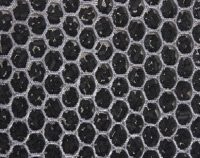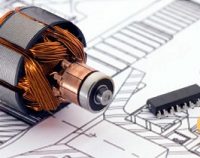Carbon Absorption of Volatile Organic Compounds: 3 PDH
$18.00
Carbon adsorption is used in air pollution control to remove volatile organic compounds (VOCs) from low to medium concentration gas streams, when stringent outlet concentration must be met and/or recovery of the VOC is desired. This course covers the types of adsorbers, adsorption theory, and design procedures for carbon adsorption equipment.
SPECIFIC KNOWLEDGE OR SKILL OBTAINED
This course teaches the following specific knowledge and skills:
- The types of carbon adsorption equipment and which are in most common use
- Define an adsorption isotherm and be able to recognize the equation for the Freundlich isotherm
- Adsorber sizing parameters
- Make adsorption and desorption time calculations
- Procedures for estimating carbon requirements
- Cost estimation procedures for carbon adsorption systems
CERTIFICATE OF COMPLETION
You will be able to immediately print a certificate of completion after passing a 20 question multiple-choice quiz. The quiz can be retaken unlimited times until a passing grade of 70% or better is earned. This course satisfies 3 professional development hours (PDH) of continuing education.
Related Courses
Microturbine Generators: 1 PDH
$6.00 Add to cartIn this online course a student will understand microturbine generators, how they work, their performance characteristics, and what applications can benefit from this combined power & heat technology. Instructor: Juan Pesante, PESPECIFIC KNOWLEDGE OR SKILL OBTAINED
This course teaches the following specific knowledge and skills:
- Explain what microturbines are and how they function
- Discuss the basics components of microturbines
- Discuss part-load performance
- Explain effects of ambient conditions on performance
- Understand microturbine capital costs
- Discuss suitable applications for microturbines
CERTIFICATE OF COMPLETION
You will be able to immediately print a certificate of completion after passing a ten (10) question multiple-choice quiz. The quiz can be retaken unlimited times until a passing grade of 70% or better is earned. This course satisfies one (1) continuing education hour (CEH)/professional development hour (PDH) of continuing education.
Preview CourseClick” Preview Course” to View Prior to PurchaseClick “Add to Cart” to Purchase and Access QuizMaryland-Electrical Engineering Package: 16 PDH
$96.00Original price was: $96.00.$64.00Current price is: $64.00. Add to cartMaryland Approved ProviderThree Electrical Engineering courses plus Maryland Statutes, Regulations & Ethics course that will earn 16 PDH guaranteed to be accepted by the Maryland Board for Professional Engineers.Instructor: Juan Pesante, PEMaryland – Statutes, Regulations, and Ethics for Professional Engineers: 3 PDH
This course satisfies the minimum 1 hour ethics/laws (ref. MAC 09.23.06.03)In this course the student will study the Maryland Board for Professional Engineer’s Statutes and Regulations, including Professional Engineering Ethics.Compressed Air Energy Storage and Pumped Storage Hydropower Concepts: 4 PDH
In this course the student will understand understand current Compressed Air Energy Storage (CAES) and Pumped Storage Hydropower (PSH) technologies and explore future advances of this technology by examining the feasibility of a variety of different concepts.
Energy Storage Technology Cost and Performance: 4 PDH
In this course the student will understand a variety of different energy storage technologies and explore their advantages and disadvantages with an in-depth cost and performance comparison. This course follows the report: Energy Storage Technology and Cost Characterization Report, published by the U.S. Department of Energy (DOE).
Electrical Storage Guide for Electrical Engineers: 5 PDH
This course provides a thorough overview of current electrical storage technologies including batteries, flywheels, compressed air energy storage (CAES), and pumped storage hydropower (PSH) and is a how-to guide for engineers to aid in the selection, procurement, installation, and/or operation of stationary energy storage systems in today’s electric grid.




